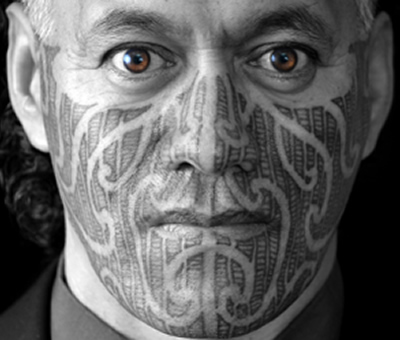
One of the interesting side effects of the meltdown of international capitalism is a sudden flurry of long-lost contacts sending me business plans.
These former Masters of the Universe are determined to bounce back from the demise of their former employers, and have already generated impressive business plans detailing exactly what they will do next.
However, in my view they are asking the wrong type of question. They shouldn’t be asking ‘what’ questions, but ‘who’ questions. Three of them, to be precise.
Start with the most basic one of all: ‘Who am I?’
They may not realise it, but leaving employment has left these people suddenly short of an identity. Before the crash, they were part of a large and well-respected organisation with a distinctive brand and a long list of things that it stood for. Now, they need to work out what they stand for as individuals.
This is where Ngahihi o te ra (the name means ‘rays of the sun’) Bidois comes in… He was born to Maori parents in Rotorua, the Maori capital of New Zealand. He was schooled in the traditional European way, took a business degree and worked for a multi-national company. Ultimately, however, he found himself frustrated and unfulfilled, and decided to re-connect with his traditional culture. To do this properly, he learnt, he would have to have his face tattooed with the traditional ‘Ta Moko’.
Eight hours under the needle turned out to be a profoundly spiritual experience. It was the start of a new part of his journey of self-discovery, which now sees Ngahihi delivering leadership courses to business people, based on traditional Maori wisdom.
Eight hours of face tattooing may not be right for every aspirant entrepreneur – but the process of re-discovering yourself and establishing your own brand can be just as radical and life changing.
My first advice for the newly unemployed is to take a holiday: however resilient you are, you have been damaged by the experience and need some time to reconnect with yourself and your family.
But I then suggest a slightly unusual step: undertake a little genealogy. Ngahihi discovered a strong connection with his ancestors, and was able to re-channel that almost genetic experience into his modern life. Even if you just have a chat with your parents and grandparents about their life, it will help you to put any current misfortunes into perspective. We sometimes forget we are all only a generation or two away from the tramp of jackboots, war and years of rationing.
Once you have developed a sense of perspective, your second ‘who’ question to ask is ‘who do
I plan to work with?’ Your identity is also defined by the people you can attract to work with you. They should have complementary skills to your own: if you are extrovert, they should be introvert; if you are good at starting projects, they should be good at finishing them; if you are bad with money, they should be good with it.
A complete start-up team has just three people, covering delivery, sales and finance. Ngahihi tells me that tribal society is very similar, with people naturally falling into specific roles of farming, hunting and organisation.
When you start a new business, you start a new tribe. A key element of a successful tribe is everyone knowing their place and respecting everyone else’s expertise. A poor entrepreneur, like a poor middle manager, is someone who ignores this and feels the need to meddle.
The third and final ‘who’ question is ‘who are you going to sell to?’ Most successful entrepreneurs sell first to people they know, so your personal network should also contain your first potential customers, people who know and trust you and are willing to give your new business a chance.
It is a big moment when you go into your first sales visit, and it is wise to have a list of questions you need to ask and benefits you can explain. Ngahihi has a built-in checklist, which he sees in the mirror every morning. The design of his tattoos explains that he should look first, then listen, then think, and only then finally talk – more excellent advice for any new entrepreneur.
Ngahihi o te ra Bidois is an International Speaker and Consultant. He is the National Speakers Association New Zealand (Auckland) 2008 Speaker of the Year and Inspirational Speaker of the Year. His Inspirational Leadership keynote speeches, MC services and Seminars are presented in New Zealand, England, Asia and Australia. www.ngahibidois.com
This article is a chapter from ‘This Is How Yoodoo It’ – a collection of Financial Times columns written by Mike Southon. You can buy this book in hard copy and in Kindle version here: http://tinyurl.com/YoodooBook




